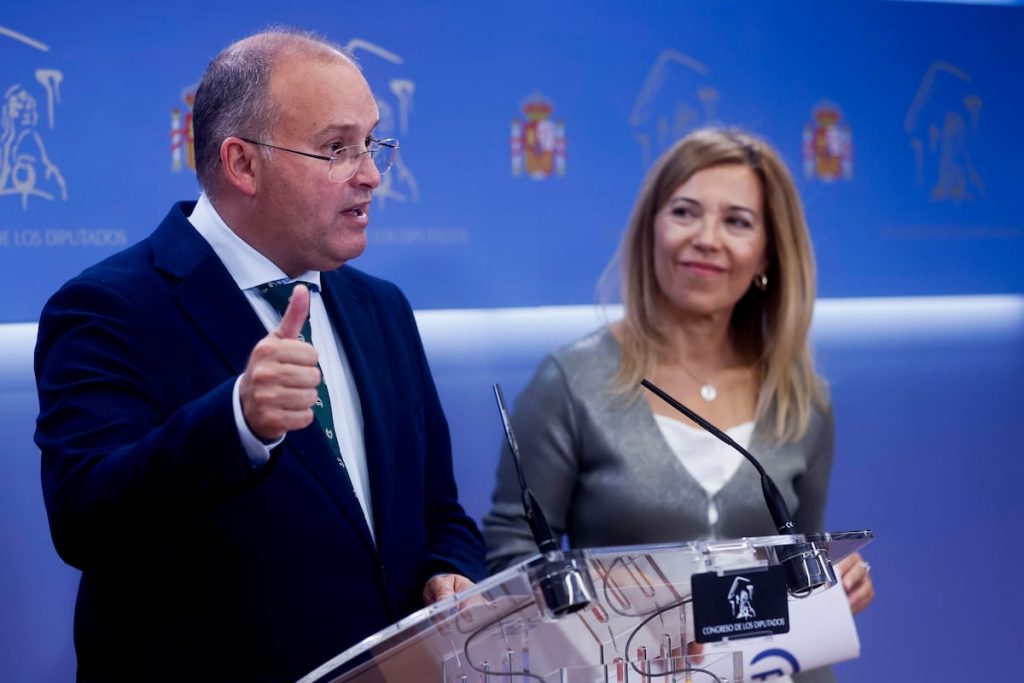The Popular Party (PP) is emphasizing its change in opposition strategy, which is more focused on social issues and free from ideological bias. They have introduced a Proposal for a Law on Reconciliation and Co-Responsibility in Congress, with messages aimed at both the hard-line faction of the party and the CEOE (Spanish Confederation of Employers’ Organizations). The proposal includes measures such as free early childhood education, extended maternity and paternity leave, and flexible working hours through a time bank agreement between companies and workers. The PP seeks to portray the government as “paralyzed” and only interested in “resisting”, while positioning themselves as taking control of a country neglected by Prime Minister Sánchez.
The PP’s proposed legislation has caused controversy within the party, with conflicting opinions on issues such as reducing the workweek below 40 hours. While some members, like Alberto Núñez Feijóo, support a shorter workweek, others like Isabel Díaz Ayuso and Esperanza Aguirre are critical. The debate within the party and resistance from the CEOE have led to Secretary General Cuca Gamarra clarifying that the PP’s proposal focuses on labor flexibility through a time bank, not a four-day workweek. Despite the differences within the party, the PP is determined to push their proposal forward in Parliament, urging the PSOE (Spanish Socialist Workers’ Party) not to obstruct the process.
The future of the PP’s proposal remains uncertain, as the PSOE has expressed reluctance to support any measures they perceive as regressive. The PSOE’s spokesperson in Congress, Patxi López, has stated that they will review the proposals but will not support any measures that they consider a step back. The Minister of the Presidency, Pilar Alegría, has criticized the credibility of the PP and its leader, questioning their commitment to social policies. The PP intends to engage with other political groups to gather support for their proposal, with Junts and PNV as their main targets.
The PP’s shift towards a more social-oriented agenda reflects a broader political landscape in Spain, with parties seeking to differentiate themselves and respond to changing societal needs. The proposal for reconciliation and co-responsibility addresses pressing issues such as work-life balance and child care, tapping into growing concerns among the population. While facing internal disagreements and opposition from the business sector, the PP is determined to move forward with their legislative agenda and present themselves as a viable alternative to the current government.
The ideological positioning of the PP, as well as criticisms from within the party and from other political actors, highlight the complex dynamics of Spanish politics. The PP’s attempt to adopt a more pro-social stance while distancing itself from ideological labels demonstrates their strategy to appeal to a broader base of voters. The debate over labor laws and workweek regulations reflects ongoing discussions about the future of work and social policies in Spain. As the PP navigates these challenges, the outcome of their proposed legislation will shape the political landscape and influence the direction of policy-making in the country.
In conclusion, the PP’s proposal for reconciliation and co-responsibility marks a significant shift in their opposition strategy, focusing on social issues and presenting themselves as a viable alternative to the current government. Despite internal disagreements and criticism from other political actors, the PP is determined to push forward with their legislative agenda and engage with other parties to gather support. The outcome of their proposed legislation will impact the political landscape in Spain and shape the future of work and social policies in the country.


